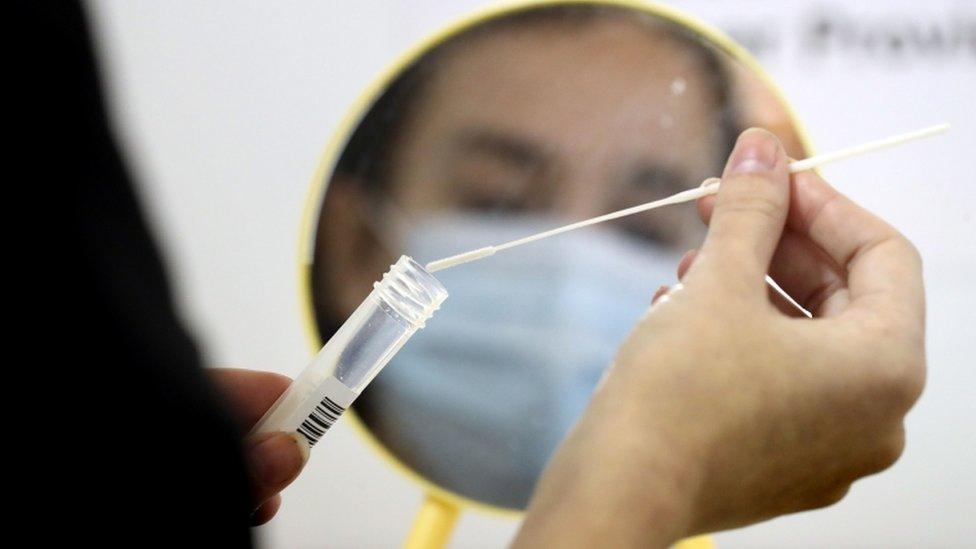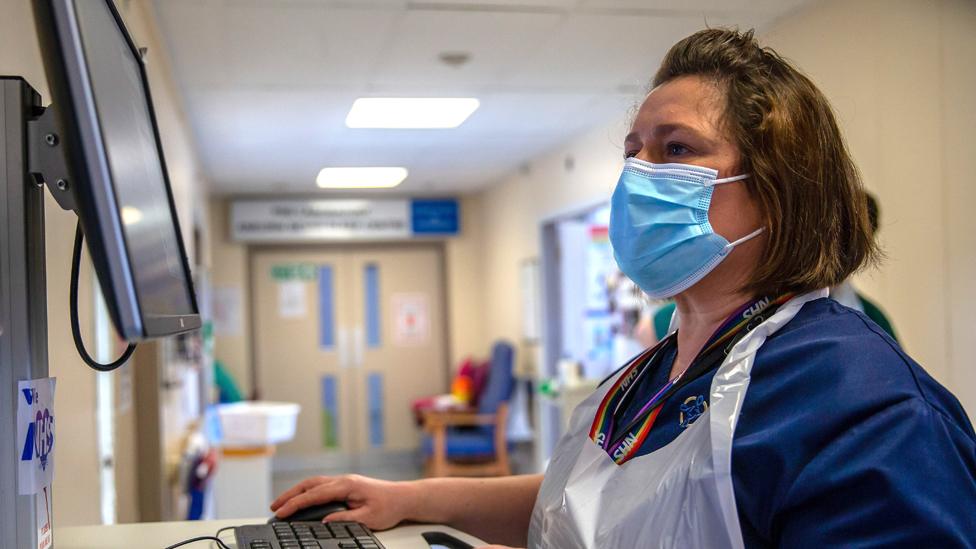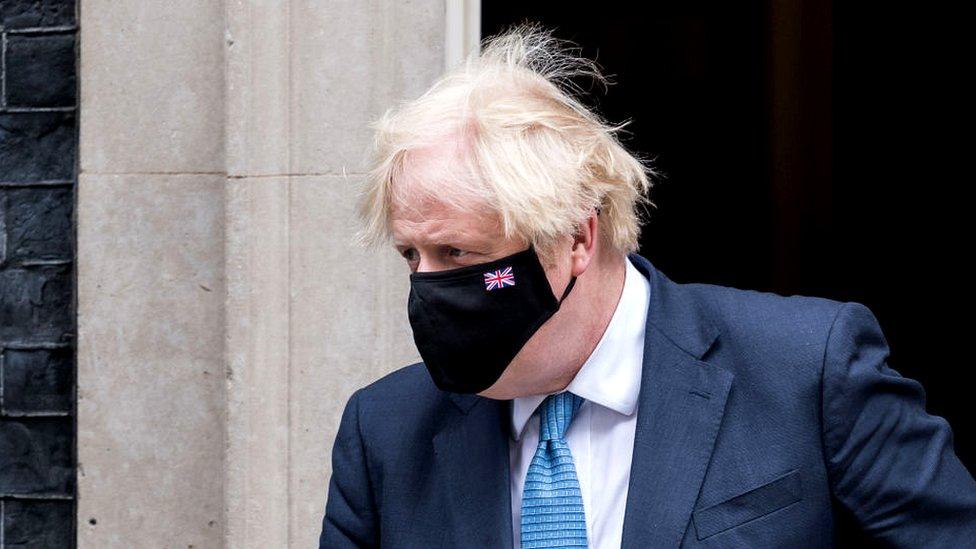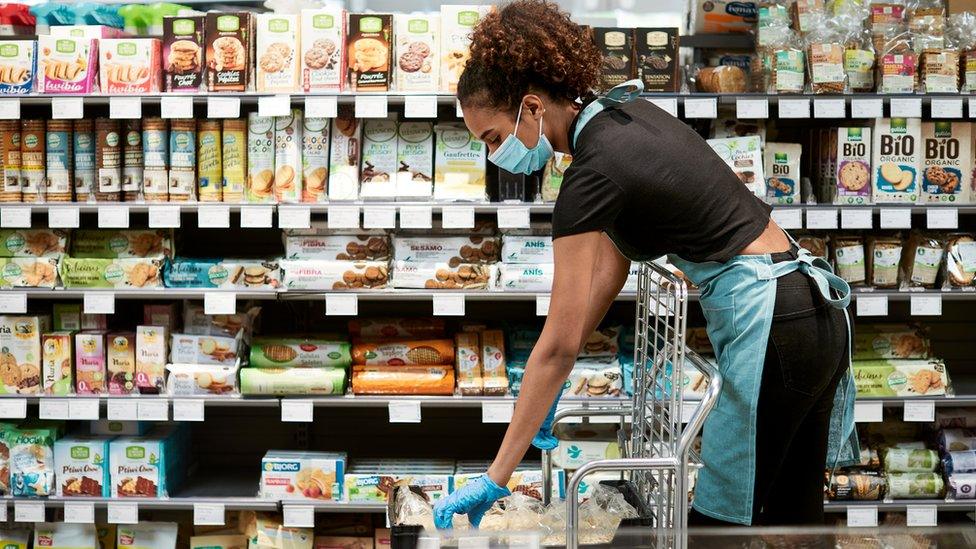Covid: Virus case numbers 'putting strain on testing'
- Published

According to government figures, the number of people testing positive for coronavirus is the highest since January
A microbiologist says he feels "exasperation" and "disbelief" at the lifting of most coronavirus restrictions in England.
Prof Alan McNally, from the University of Birmingham, said with case numbers rising it would put more strain on testing infrastructure.
He said there was a "feeling of exasperation and disbelief in the infectious disease community".
The government said it would urge people to continue to act responsibly.
"We've fought a really hard campaign for the last 18 months against herd immunity... but they've gone ahead with it. None of us can believe it," Prof McNally said.
He said with the easing of restrictions driving case numbers up, "it's going to put much more strain on testing infrastructure that it's not capable of dealing with".
According to government figures, the number of people testing positive for coronavirus is the highest since January. But there are signs the testing system is struggling to return results in 24 hours.
In the most recent week, 63% of in-person tests were received within 24 hours, compared to nearly 77% (76.9%) in the previous week.
The median turnaround time for home tests has increased from 45 to 56 hours. The turnaround time for tests at centres has increased from 39 to 49 hours.

Prof Alan McNally is a microbiologist at the University of Birmingham
Prof McNally believes a move towards more lateral-flow tests would help the system.
"Keep PCR testing and sequencing for where it's really needed, with travel to see for new variants and in hospital patients. It's to make sure we know what the virus is doing... to monitor the virus and see if it's changing.
"It's been a really frustrating few months, I've been in some real lows in the pandemic."
Asked if the challenges the testing system is facing is creating a sense of de ja vu, he said: "It's not quite the same... in the past we didn't have the capacity we should have had. But we're being asked to perform levels of testing that are now ridiculous.
"The strategy of dealing with the virus has left testing in an impossible position."
He said with the virus spreading through the population, it affected people working in testing labs who might be forced to self-isolate, "taking down key people".
"The thing that frustrates me with the comment 'if not now, when?' the answer is there; it's when more people have had two doses of the vaccine and, if that means waiting, then so be it.
"I know there are trade-offs... with the economy but as a microbiologist, I'm always going to think public health first.
"It we reach 200,000 cases a day by the end of August then it rolls to September with schools and universities going back and we end up exactly where we were last September."
The university's Institute of Microbiology and Infection set up a so-called Lighthouse lab, a facility dedicated to PCR testing, at the beginning of the pandemic and Prof McNally said he had had informal discussions with healthcare providers about setting up the lab again in the future.
In a statement, the Department of Health and Social care said the vaccine rollout had severely weakened the link between cases and hospitalisations and built "an enormous national testing infrastructure" with PCR testing capacity of about 630,000 tests per day.
"From the outset of the roadmap we have remained cautious, prioritised data and scientific advice over dates and would urge the British public to continue to act as responsibly as the overwhelming majority have throughout the pandemic," it said.

Follow BBC West Midlands on Facebook, external, Twitter, external and Instagram, external. Send your story ideas to: newsonline.westmidlands@bbc.co.uk, external
- Published20 July 2021

- Published20 December 2023

- Published19 July 2021

- Published19 July 2021

- Published18 July 2021

- Published31 January 2022

- Published5 August 2021
